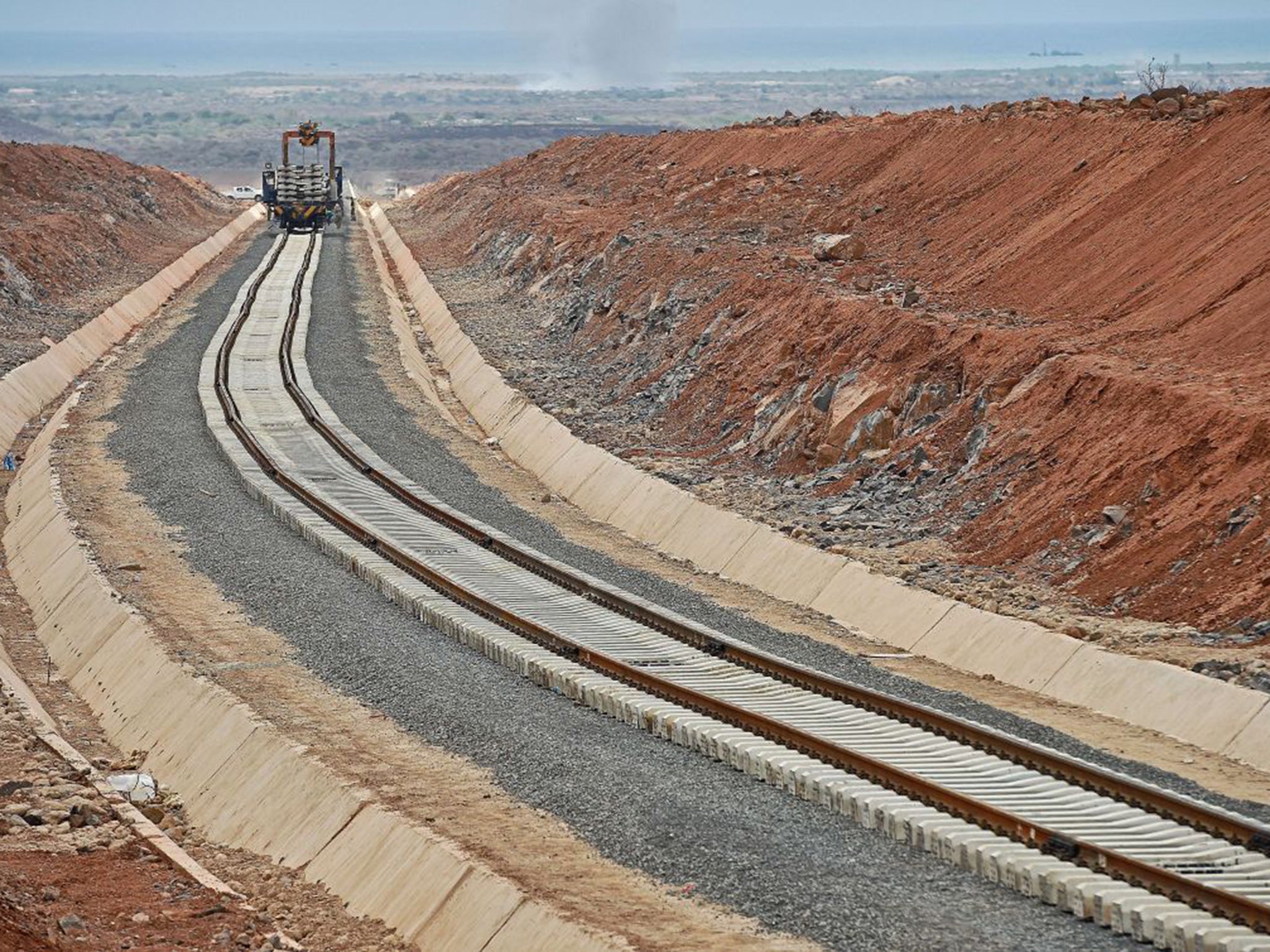Sam Pa: The fall of China’s trailblazer in Africa
In its search for new markets and key commodities, Chinese investment in the continent has soared to more than $200bn a year. This month, the elusive deal maker credited with spearheading this drive was arrested

The secretive Chinese businessman Sam Pa doesn’t enjoy the limelight. His arrest in Beijing earlier this month, reportedly in connection with a major corruption inquiry involving China’s state-owned oil company Sinopec, is one of the rare occasions the spotlight has fixed firmly upon him.
Despite the best efforts of journalists and other investigators to discover more about the controversial businessman credited with spearheading China’s spectacular drive into Africa over the last two decades, he has remained elusive.
Even basic details such as his name and nationality are the subject of speculation. He was born in Hong Kong but different accounts of his life have him raised in the former British colony or on the Chinese mainland.
Then again, it has been reported that he is from Macau, Portugal’s former colony on the Pearl River. Or Singapore. One official report said he was Cambodian.
As with his origins, so with his name. His Cantonese name is Tsui King Wah. Other names he has reportedly used include Xu Songhua, Sa Muxu, Sam King, Antonio Famtosonghiu Sampo Menezes and Ghiu Ka Leung.
He reportedly has multiple passports to match his many aliases.
The mystery over his origins may be related to his former career as a spook. “All his life he’s worked in Chinese intelligence,” one source told the Financial Times.
While his origins may be opaque, his business dealings in Africa have been harder to obscure. Pa and a group of Hong Kong-based companies known as the Queensway Group have been at the forefront of a series of high-profile multi-billion dollar deals between China and African nations. For some, he symbolises everything that is good – and bad – about the astonishing surge of Chinese economic engagement with Africa.
Chinese investment in Africa has risen from less than $10bn two decades ago to more than $200bn. Fuelled largely by Chinese demand for African commodities as well new markets for its manufactured products, China moved fast to catch up with countries with historical links to the continent.
Motorways, hospitals and a host of other infrastructure projects financed with Chinese money have spread across the country together with more than a million Chinese migrants.
Queensway Group, which describes Mr Pa as an “advisor”, blazed a trail across dozens of African countries including Angola, Guinea, Madagascar, Tanzania and, most controversially, Sudan and Zimbabwe.
Key to the deals were his relationships with African military and government leaders dating back several decades. These relationships were developed, in part, during his time as a Chinese intelligence operative and weapons trader, according to a detailed investigation of his activities in Africa by US researcher JR Mailey.
JR Mailey describes the Queensway Group as “the prototypical predatory investor.” In much-cited report published earlier this year he said it frequently appears in resource-rich African nations where it could operate without a great deal of accountability.
“In Angola and Zimbabwe, for example, few details from the contracts pertaining to Queensway’s investments – reportedly worth up to $9bn in each country – have ever been disclosed to the public. In states where contracts have been unearthed, such as Guinea and Tanzania, the deals were revealed to be flagrantly unfavourable to the citizens of the host country. Having allegedly bribed African government officials and engaged in illicit arms trafficking and diamond smuggling, Queensway’s deals in Africa have often had a disastrous impact on governance,” his report found.
“Promised high-profile infrastructure construction projects regularly fail to materialise. Allegations of corruption among senior government officials who control natural resource contracts are widespread. Reputable extractive firms are cut out of the market, undermining the long-term health of the resource sector. And unaccountable governments are able to persist, propped up by the infusion of financial and material support to the regimes in power,” the report states.
Critics have called the spread of China’s influence across Africa “neo-Imperialism” and warn that Beijing’s much-vaunted policy of non-intervention in the internal affairs of African states is unlikely to last as the extent and depth of Chinese companies and its citizens in African nations’ increases.
Sam Pa’s arrest was reportedly linked to a corruption inquiry into Su Shulin, governor of Fujian province. Mr Su, the former boss of China’s state-owned oil giant Sinopec, has been accused of helping a relative to secure contracts to build a massive oil depot in China.
The inquiry is part of an much wider anti-corruption campaign launched by President Xi Jinping, who visited Britain this week.
Among the deals investigators are reportedly examining is a huge deal which saw Mr Pa act as a middleman or fixer to secure Sinopec a lucrative slice of Angola’s oil fields.
Watchers of China’s foreign relations say that Beijing under Mr Xi’s leadership had already begun moving away from frontier trailblazers like Sam Pa to more ordered, diplomatic relations with African states.
Academics such as JR Mailey say that regardless of whether Sam Pa is released from detention to resume his business deals – or faces trial in China – the Queensway Group business model persists in Africa and elsewhere because of “weaknesses in domestic and international oversight.”
His report calls for efforts to build stronger oversight or watchdog bodies, other countries should do more to regulate the overseas activities of corporations in their territories by increasing transparency and enforcing anti-corruption measures as well as clamping down on the loophole of anonymous shell companies which Sam Pa and the Queensway group exploit freely everywhere they do business.
Join our commenting forum
Join thought-provoking conversations, follow other Independent readers and see their replies
Comments
Bookmark popover
Removed from bookmarks